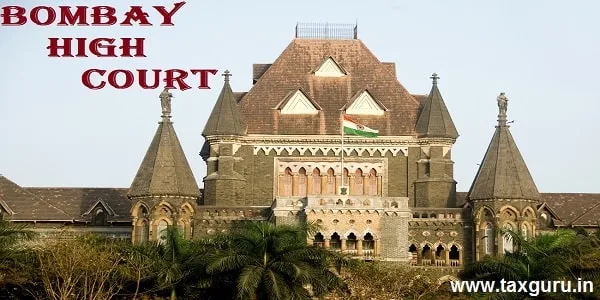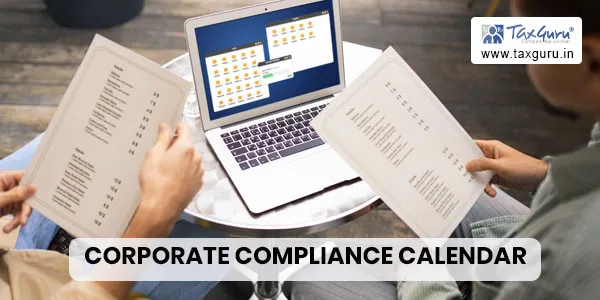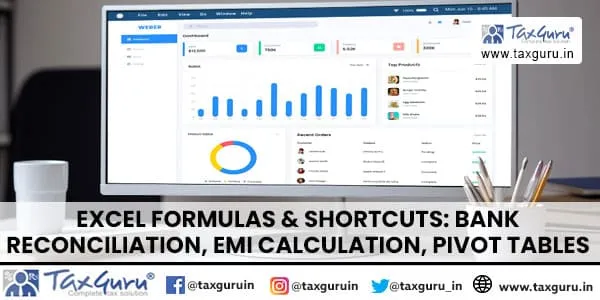Taxpayers express helplessness against rude or arbitrary behaviour of officers with little assigned accountability in practice: The continuing impact on the taxpayer who has been relegated to a position of helplessness is unprecedented internationally. The confusing, if not arrogant, environment that they have to face on a daily basis was reported by high finance officials of major Indian corporations who are some of the largest Indian taxpayers. This occurred during the TARC’s stakeholder consultations at five Indian metros – Bengaluru, Chennai, Delhi, Kolkata and Mumbai. They did not complain about the disagreements of the quantum decisions as much as about the rudeness in communication, non-maintenance of appointment time, passing on accountability to another location, and going so far in some instances as informing the taxpayer that a demand is being made to obviate “vigilance” – internal audit against the officer – and the taxpayer should take recourse to the appeals process available to him. This matter is detailed further as it has cropped up time and again during consultations with taxpayers in different contexts.
An issue that cannot be ignored and appears to work in the reverse direction is that of moral hazard. Taxpayers openly complained during the TARC’s consultations about their helplessness against demands for bribes to make refunds, to hold back infructuous demands, or speed up processes from dormancy. While no officers’ names were mentioned for fear of retribution, the TARC views that the open claims made by stakeholders is a cause for deep concern. Even senior officers admitted their ineffectiveness in controlling this growing phenomenon. On the one hand, a toothless institution may suffer from various such maladies as almost a quid pro quo for the powerlessness that it endures. On the other hand, if the institution is responsible for delivering a public good and is intended to be the primary institution for generating funds for public expenditure, then bribery represents a leakage from public funds. Whatever tax is not paid and is shared instead between an errant taxpayer and a corrupt officer is an amount that does not enter the exchequer. This institutional disease, to the extent that it exists, cannot be ignored and a solution must be found.
Adverse impact of revenue target on tax officer equilibrium: Revenue target is the sole criterion that is effectively used to assess performance. Targets are set in the Union Budget in a static context. No attempt has been made by the Boards to undertake any post mortem study that would analyse whether the projections were correct over a period of time when placed against the economic trajectory during the past year. Instead, the Boards pressure Chief Commissioners, who pressure Commissioners, who pressure lower level officers to meet fixed revenue targets, irrespective of the prevailing condition of the economy. Officers complained bitterly during the TARC’s consultations in the five metros about the anxiety that they go through on account of the revenue collection pressure and some even went to the extent of pointing to the need for mentoring, coaching and psychological support.
Blind revenue target causes unjust pressure on good taxpayers: Modern tax administrations do not use a fixed or static revenue target. A revenue projection is made at the time of the budget reflecting the condition of the economy at that point. The projection is changed during the year reflecting the changing economic outlook. This is compared against what revenue is actually being collected. The difference is called the “tax gap”. This is continually minimized through better collection efforts by reducing or eliminating tax evasion rather than by putting pressure from the top on officers below who, in turn, pressure even good taxpayers to contribute more revenue or postpone making due refunds in particular during the last quarter of the financial year. Such policies would be illegal in other law abiding societies. Consequently, instead of formulating policies with respect to tax administration and tax policy, several Board Members take on the role of tax collector. The consequence, unsurprisingly, is twofold: first, a dearth of meaningful tax policy or tax administration policy and, second, an inequitable pressure on the good taxpayer. Indeed, the TARC observed, other than helplessness, deep and openly expressed anger amidst even top taxpayers in several metros.
Wrong use of tax avoidance instruments for revenue generation: In the direct tax area, ordinarily, transfer pricing examination between associated enterprises should be used as a tool to minimize tax avoidance. In India, transfer pricing measures are used for revenue generation, which comprises a completely wrong approach. This is revealed through the allocation of revenue targets to transfer pricing officers (TPOs) from transfer pricing adjustments. This is unheard of internationally. Accordingly, India has clocked by far the highest number of transfer pricing adjustments, demanding adjustments even for very small amounts. There is also a high incidence of variation among TPOs in their adjustments for similar transactions or deemed transactions. Taxpayers reported that they often succumb to such adjustments simply to carry on with business activity for, otherwise, they would have to allot or divert huge and unavailable financial and staff resources to such activities. Several other avoidance measures are also interpreted by the administration to be used for revenue generation, which comprises wrong policy.
Defective formulation and implementation of tax law and rules to generate revenue: On the indirect tax side, since the introduction of the “negative list” of services – only listed services are not taxed while all others are – has wreaked havoc among taxpayers due to poor management of change by the CBEC, reflecting lack of knowledge, preparedness or Board guidance to field officers leading to multiple interpretations combined with the usual lack of accountability for timeliness in clearing up confusion through circulars or guidance notes. The practice of delaying refunds by asking for irrelevant information reveals an undesirable and non-transparent practice to avoid refunding what is legitimately due to the taxpayer. Such artificial devices to garner revenue reflect an unethical approach to revenue collections.
Lack of quality in fiscal deficit reduction: Revenue target policy is usually set to achieve a better fiscal target figure. The TARC observes that the revenue target policy has been erroneous inasmuch as it is not just the numerical figure of fiscal deficit that counts but its quality. If a fiscal deficit is reduced through coercive government action in an era of global information, international rating agencies are going to take note of the overall business environment. Merely reducing the quantified fiscal deficit is not sufficient since the focus turns also to the quality of deficit reduction. Herein lies the fallacy of pursuing a blind deficit reduction policy. It has to be matched, instead, with appropriate approaches towards revenue collection both from tax administrator and taxpayer point of view. Indeed, some countries today are so concerned about the impact of tax policy and tax administration on the taxpayer that they have virtually removed the word “taxpayer” from the lexicon, replacing it with “stakeholder” and “customer”, recognizing them as partners with the administration in generating revenue. India remains a long distance from such an approach.
While revenue target is often achieved due to economic factors, identification of tax administration impact or tax-base impact is not separately attempted. Thus, the overall impact assessment is confined to a year, and no gainful change is made in the tax administration or conscious efforts made to widen the tax-base.
Escalation of disputes and poor recovery from demands: Lack of accountability in raising tax demands without accompanying responsibility for recovery has led to an unprecedented situation in India, which is experiencing by far the highest number of disputes between the tax administration and taxpayers with the lowest proportion of recovery of tax while arrears in dispute resolution are pending for the longest time periods. Thus, dispute management comprising dispute prevention and dispute resolution is at a nadir. It has also become a profession in its own right in a backdrop where, in modern tax administrations, disputes are entered into only as a last resort.
Virtual absence of customer focus: Much of the modernizing tax administrations across the world have changed their stance towards taxpayers in a visible change in the approach to dealing with them, which is to treat them as partners. Segmenting taxpayers according to their tax behaviour enables the tax administration to develop strategies appropriate for such behaviour and improve the collection mechanism. In India, no customer focus strategy has been developed based on segmentation analysis.
Examples of customer focus are few and there is no training for it, reducing taxpayers to a subservient status: It is true that numerous Aayakar Seva Kendras (ASK) are being set up at locations all over India so that a taxpayer can register a question and follow how the matter is progressing through the system. However, selected visits indicated a wide variation in implementation. Second, through installed ICT software, a taxpayer can log in to see whether and how much his tax deduction at source (TDS) has been credited. However, many lacunae remain in terms of non-matching and the system has been slow in correcting anomalies. Third, other than TDS, there are significant cases of mismatch between the ICT-based Centralized Processing Centre (CPC) and the information percolating from there to a taxpayer’s Assessing Officer (AO). Although the taxpayer suffers as a result of the mismatch, the lack of responsibility or accountability, leave alone timeliness in resolution, between the ICT and the AO for redressal of the mismatch is striking, despite ardent pleas from affected taxpayers, the latter sometimes even being subjected to scrutiny. Fourth, a common complaint made during the TARC consultations by high and low taxpayers alike was that the Indian tax administration was virtually the opposite of what is understood globally as customer focus orientation in terms of congenial attitude and polite approach to the taxpayer, or in terms of timeliness in decision making.
Instances of egregious tax officer behaviour: Taxpayers are subjected routinely to rude and arrogant behaviour, are made to wait hours – being called to appear in the morning though met many hours later, sometimes even in the afternoon – are asked to make photocopies of information already sent to the administration again during the visit without availability of copying machines, CEOs of companies being asked to appear when the CFO or an accounts official from the company would suffice. These characteristics signify practice that has descended to unprofessional levels, to put it mildly. There is no departmental training to behave differently; there are no guidelines or framework of rules for accountable behaviour. Yet the vision and mission statements of the departments pronounce their intention to care for the taxpayer by incorporating taxpayer perspectives to improve service delivery. The prevailing situation is so far from common global practice that, in the judgment of the TARC, there is likelihood of a tax revolt in the not so distant future unless emergency and compulsory training is conducted for officers, with strong cues from the leadership. Contextually, while Ethics, as a subject, forms a part of probationers’ training, Customer Focus is not addressed as a topic at any point in the officer’s career. This decidedly reveals how the tax administration has functioned, and continues to function, in isolation and in a feudal manner, protected by systemic job assurance and assessed highly as long as revenue targets are met. The distance of this framework and manner of functioning from authentic customer focus could not be greater. The need for remedy could not be more urgent.
Source- First Report of the Tax Administration Reform Commission (TARC)





















It is necessary for the govt to create a conditon that working honestly will have a backing and will not be targeted by the corrupt (both above and below). It is well known the system is so much polluted that anyone want to deviate from the rest in dispensing honestly will be targetted and shunted out. I have seen so many very honest tax officials who are honest to the core during my interactions with them. Are they being given proper backing/support/encouragement by the rest? POINT TO PONDER.
Every citizen poor or otherwise pays indirect tax. The businessman who collects it may not deposit it with the Govt. That is a governance issue. We are now in less government and more governance regime. Income Tax citizen do not want to evade; it is the tax officers and tax practitioners who make them evade the tax – because of procedures. Tax officials do not want to work. for example, the tds certificate is filed by the assesse along with his return. How does it become the work of the assesse to tally it with the return filed by the tax deductor? Tax officials are government servants (R) servants meant to serve the sovereign citizen. Will Modi Government drive this home?
Lack of transparency in deployment of Tax personnels / transfer and posting policy generates corruption to large extent. from the records of posting you will find a section of favoured enpl0yees are posted in sensitive / core assessment charges repeatedly while a large section is left out of it .
Posting is in the hands of CCIT(CCA) charges but no criteria fixed so favoritism and malpractice is in place
It is not only target.There are so many other factors.The Govt officers are made to believe that they can act in an arbitrary manner and for that they shall never be punished.The corrupt politicians and the strong IRS officers union are always there to support the corrupt,ignorant and arrogant officers.The procedure to seek redressal from the court is also very lengthy and cumbersome and therefore an ordinary citizen shall avoid it.Besides,the income tax proceedings are perpetual in as much as they are for each year and any strong action from an assessee to seek the redressal of his grievance shall be taken personally by the officer and his all the colleagues and they shall collectively apply the laws against him in the most subjective manner and all the efforts shall be made to teach him a lesson and cause the maximum harassment.No association or the court shall come to his rescue and he shall have to suffer for several years and the entire gang of the officers shall enjoy with impunity.They shall enjoy the pains inflicted upon the assessee and have sadistic pleasure.Judiciary shall have to be strong ,more understanding,more simple,liberal and shall have to have vision to comprehend the game played by the officers in the garb of the files and in the names of law.
N K AHUJA SIR,
IF YOU GIVE YOUR E-MAIL ID IN THIS BLOG I WILL TRY MY LEVEL BEST TO SOLVE YOUR PROBLEM
Mr.Ahuja ji,
Coming to the specifics, deal as suggested by K.Mukambika for your refund.
Yes, I do agree
Targets are the sole criteria, and the Tax officials goes to the extent of threatning left and right to the assesses, mostly honest assesses, corporate and non-corporate alike.
In the individiual assesse, the threat is direct without any mincing of words. In the case of Corporate (since there is hope for a personal slice) it is indirect.
On both accounts the assess suffers, as correctly reported by the TARC, a Tax revolt is not far away.
N K AHUJA SIR
HAVE YOU FILED ELECTRONICALLY?
HAVE YOU GOT 143(1)? ASSESSMENT ORDER
IF YOU GOT 143(1) MOVE RECTIFICATION AND ASK REFUND FROM IT DEPARTMENT
Mr.N.K.Ahuja sb, when accountability is missing, how you can expect result? If at all any honest and straight forward officer is found and not co-operating with the rest, there is always R&D wing and training institutes for shunting them! This is the harsh reality. The govt. must, as a first step, encourage and support the honest ones, than pretending to punish the guilty.
18-06-2014 Bangalore
The problem of harassment yo tax payers lies in the system itself –
tax payment and then assessment. Reverse this system : assessment followed by tax payment. Tax payers will get back their honour.
Every problem has a solution. Details will be sent if the tax payers’
is good for my suggestion.
– Nagaraj T V ABTPN.5713D
Your article is full of facts and truth which we are to face. In my case tax has been paid late but with late fee and interest and challan form on which A/Y is clearly mentioned, but I.Tax department has booked in their computer system in the next year and notice is being sent to me to deposit the tax. Met personally to the ITO who after understanding the case, gave instructions to his staff to correct the error committed by I.Tax department but nothing has been done. It is case of an individual senior citizen age 77 suffering from cancer. Several reminders have been sent by speed post but no effect. Bangluru office says this will be done by Delhi office and ITO in Delhi office has given instructions to his stsff to rectify the mistake but they have not done any thing. Now what to do? what is the remedy? Is writing articles only going to help and solve the problem. Suggest some concrete action.
this is the actual scenario!
hope all these markings do not fall on deaf ears
God save Tax Payers from these MONSTERS!!!!
Every word of your article spells truth and ground reality faced by the harrased tax payer. Ask any honest IT auditor or Service tax consultant and he will come out with more frightening truth about the working of these departments.
respected sir now it is incresing day to day no offical take care even there is lacking of proper sitting drinking water fans etc
Regarding corruption while processing refund. The point to be noted is the bribe demand is not for circumventing the rule to avoid some tax or make some saving, but to expedite the process of refund. it so happens ito office says same has been sent by post which is not receive at the assessee level. If that is because of chage of address, ITO office says pl go to the old address and locate the letter. They have no time or upgradation in the system about the letters/Cheques received back. For writing the cheque again they say we have to wait for the validity of the cheque to expire, viz., 1 to 6 months. Scope exists to make the tax payer to run from pillar to post.
Now the refund directly to the customer/tax payer is in place and working perfectly well and a big administrative reform. Tax payer should avail this facility.
It is very difficult to get the address changed in the PAN. They will raise objections without trying to see the truth. They want to close the file by sending the clarification. The telephone number for PAN enquiry is as good as not there. It takes 45 min to get connected to the concerned who cannot give satisfactory reply and completes by stating to write back.
To those seekers of corruption/bribe; The sytem has progressed to alarming levels. Earier the bribe was to be paid to get the ‘things expedited’ or ‘to circumvent the rules (role of diescretionary power) to overlook the shortcomings’. Now even for genuine works the babus need bribe. Also the culprit is the one who gives even though he is perfect in all respects. It is because they feel the system is polluted enough to attempt to swim against. Much more can be said about the corruption.